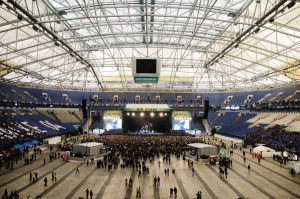The Impact of Industrial Automation

Industrial automation has fundamentally reshaped the manufacturing landscape, introducing levels of speed, efficiency, and precision that were unthinkable just a few decades ago. This technological revolution has been driven by a suite of advanced technologies, including robotics, artificial intelligence, and particularly, servo drives and controllers, which play a crucial role in modern automated systems. The integration of these technologies has not only enhanced production capabilities but also significantly altered the workforce and economic dynamics of manufacturing.
Historical Perspective and Evolution
The roots of industrial automation can be traced back to the early 20th century with the introduction of assembly lines. This innovation marked the first phase of industrial automation by standardizing production processes and significantly boosting output. However, true automation began to take shape with the development of computer technology and robotics in the mid-20th century.
The introduction of programmable logic controllers (PLCs) in the 1960s was a pivotal moment, allowing for more flexible and complex control systems. As computer technology evolved, so did the capabilities of these systems, leading to the more sophisticated automation technologies we see today.
Core Technologies in Industrial Automation
- Robotics: Robots are perhaps the most visible symbols of industrial automation. They are employed for a variety of tasks that are either too dangerous, too precise, or too tedious for human workers. Robots have revolutionized assembly lines, especially in the automotive and electronics industries, by performing tasks with superhuman speed and accuracy.
- Artificial Intelligence and Machine Learning: AI and machine learning algorithms have enabled machines to make decisions based on real-time data, leading to significant improvements in production planning and process optimization. These technologies allow for predictive maintenance, quality control, and even dynamic adjustments to production processes based on varying inputs and conditions.
- Servo Drives and Controllers: Servo drives and controllers like the dkc21.3-200-7-fw from DKC are integral components that provide precise control of motor speed and position in automated machinery. In applications where exact movements are critical, such as in CNC machining or robotic arms, servo technology ensures high levels of accuracy and repeatability. These systems are crucial for achieving the high standards of quality required in today’s manufacturing processes.
- Sensors and Data Analytics: Modern industrial automation systems are equipped with numerous sensors that gather data from various points along the production line. This data is then analyzed to monitor performance, predict failures, and optimize processes. The ability to collect and utilize vast amounts of data is a hallmark of what is often called the Fourth Industrial Revolution or Industry 4.0.
Impact of Industrial Automation on Manufacturing
- Enhanced Productivity: Automation significantly increases the speed and efficiency of manufacturing processes. Automated systems can operate 24/7 without breaks, fatigue, or shifts, dramatically increasing output compared to human-operated systems.
- Improved Quality and Consistency: Automated systems perform tasks with high precision and minimal variance, leading to products of consistent quality and fewer defects. This consistency is particularly important in industries like aerospace and pharmaceuticals, where precision is crucial.
- Reduced Production Costs: Although the initial setup costs for automated systems can be high, they save money in the long term by reducing labor costs and increasing throughput. Automation also minimizes waste by improving precision and reducing errors.
- Workplace Safety: Automation has taken workers out of many dangerous roles, such as those involving heavy machinery or toxic substances, significantly reducing workplace injuries.
Challenges and Considerations
While the benefits of industrial automation are considerable, there are challenges and concerns that need to be addressed:
- Job Displacement: One of the most significant concerns about automation is its impact on employment. While automation does create some new jobs, these often require different skills than the jobs they replace, leading to potential unemployment and underemployment issues.
- High Initial Investment: The cost of implementing advanced automation systems can be prohibitive for smaller manufacturers. This financial barrier can exacerbate the divide between large and small enterprises.
- Technical Challenges: The complexity of automated systems requires a high level of technical skill to operate and maintain. This necessitates significant training and can create dependencies on specialized technical personnel.
- Cybersecurity Risks: As manufacturing systems become more connected, the risk of cyberattacks increases. Protecting these systems from potential threats is becoming an increasingly complex and crucial task.
Conclusion
Industrial automation has revolutionized manufacturing, bringing efficiency and quality that bolster competitiveness in a global market. Technologies like servo drives and controllers enhance the precision and flexibility of automated systems, making them indispensable in modern manufacturing setups. However, as the industry continues to evolve, it must address the socio-economic impacts and technical challenges that come with these profound changes. By balancing innovation with thoughtful regulation and workforce development, the manufacturing sector can continue to benefit from automation while mitigating its potential drawbacks.






